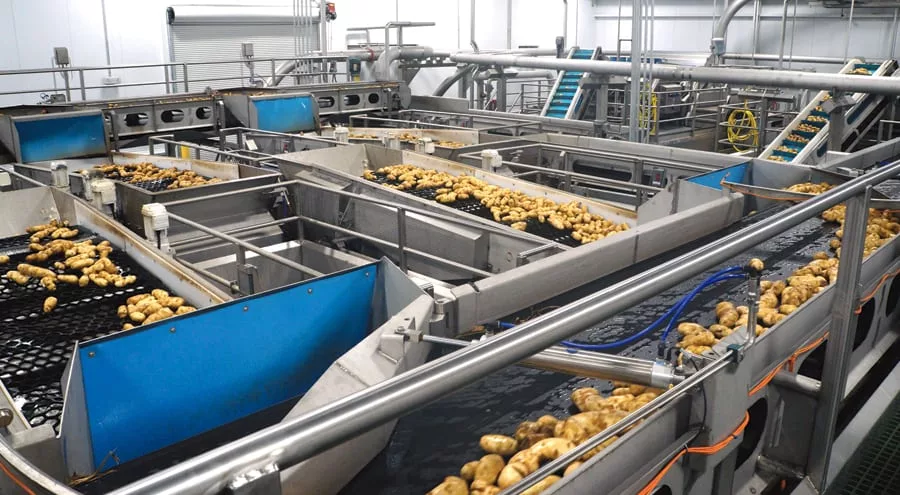
Home » Impact Washington offers concierge service to manufacturers
Impact Washington offers concierge service to manufacturers

June 14, 2024
Ask Nick Wilkes what small- and medium-sized manufacturing businesses in this state need to do to be successful, and he will offer this advice: Take the time to plan and map a strategy.
“Probably the No. 1 challenge — and it’s nothing new — is taking the time to slow down to figure out strategy, culture and the order to hit those deadlines. Slow down, but work smarter, not harder. Take small little bites,” said Wilkes, director of business development for Impact Washington.
The nonprofit is dedicated to supporting Washington manufacturers, which number more than 7,000 and employ roughly 268,000, according to the Association of Washington Business.
Since 1997, Impact Washington has delivered 3,000 value-driven improvement solutions to more than 1,500 of Washington’s small and medium-sized business, helping them to compete and grow.
The nonprofit specializes in aerospace, maritime manufacturing, and food manufacturing.
Impact Washington is the official Manufacturing Extension Partnership, or MEP, representative for the state of Washington, and it serves as the voice of the industry, working with local, state and federal agencies.
There are MEPs in every state, as well as Puerto Rico, with more than 1,400 advisers and experts.
A concierge service
Impact Washington provides an array of management and operational consulting services tailored to small- and medium-sized manufacturers.
Wilkes and several staffers are based out of Bothell, but they’re out in communities all over the state, working as consultants, coaches or facilitators.
“We’re kind of a concierge. If we don’t have it, we make the introduction to who does,” Wilkes said.
The agency can help manufacturers identify what Wilkes calls levers – areas that can contribute to larger issues, such as labor shortages.
“One (lever) is looking to see if a manufacturer has too much waste. Let’s become less wasteful,” Wilkes said. “Look at all of the steps the manufacturer is taking. Is there value added or not?”
Another lever is automating tasks that people don’t need to be doing, he said.
“Could you automate with physical processes?” Wilkes asked. “For instance, what about a little machine that could build boxes instead of a person putting them together? In Spokane, there is a company that has an automated cart that takes supplies to workstations — such as drill bits, and oil — instead of a person doing that job.”
Wilkes says his organization relies on experts from every field.
“You know (Tri-City Development Council president and CEO) Karl Dye? Well there are 30 Karls throughout the state,” Wilkes said. “We work with Economic Development Councils (EDC’s) throughout the state with cities, ports and chambers.”
Impact Washington’s database can help clients tackle supply chain issues. It also uses a supplier scouting service to find needed suppliers in other states.
“There are a lot of relationships involved in building a robust supply chain,” Wilkes said. “We have Tier 1 suppliers, Tier 2 and Tier 3. We know every expert in MEP. On the flip side, we’re fielding inquiries from 49 other states, for supply chain opportunities.”
The numbers tell the story
Impact Washington’s goals are to help companies boost growth, productivity, reduce costs and increase capacity by offering customized and hands-on solutions.
Companies can apply for grants, vouchers and job skill training programs through the agency’s website.
Impact Washington also offers small manufacturers with up to 20 employees up to 80 hours of direct consulting and training at no cost.
In the latest available statistics, fiscal year 2021, for every $1 of federal investment, the MEP National Network created $26.20 in new sales growth and $34.50 in new client investment. That translates into $3.9 billion in new sales.
And for every $1,193 of federal investment, the MEP National Network created or retained one manufacturing job.
In that same fiscal year, the MEP National Network interacted with 34,307 manufacturers nationwide.
According to surveys from clients, the network helped manufacturers bring in $14.4 billion in sales, $1.5 billion in cost savings, $5.2 billion in new client investments, and helped create or retain 125,746 U.S. manufacturing jobs.
In 2023, a Small Business Innovation Fund grant from the federal Department of Commerce allowed Impact Washington to deliver more than 2,300 hours on training and consulting to more than 40 small companies across the state, with a market value close to $650,000.
The nonprofit has numerous success stories highlighted on its website, including one from Richland’s SIGN Fracture Care.
Wilkes said Impact Washington can assist with a variety of issues.
“In northeast Washington is a company with some upcoming challenges in the welding department,” he said. “A guy was retiring who had 30 years working there. That’s a lot of knowledge to lose. What was the succession plan? Was there technical training? Could you have a technical training process? What do you do when the boomer wave heads out?”
Wilkes said it can offer insight on how to retain employees by identifying paths to better positions within the company.
“You have to have something eloquently stated, paths for six months, five years and 10 years,” he said. “You have to have a very clear path, and show them the options. We’ve helped a small company of 30 to 50 people by having that stuff published in their company manual.”
Go to: ImpactWashington.org.
Manufacturing
KEYWORDS June 2024
Related Articles





